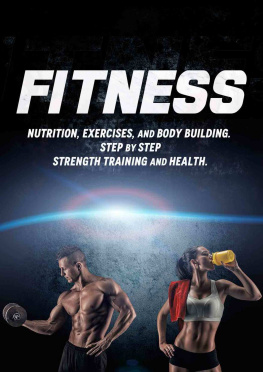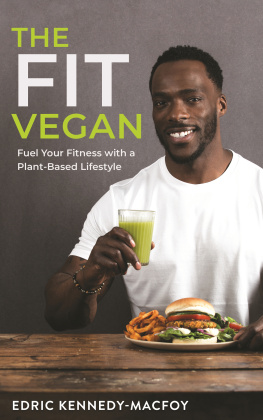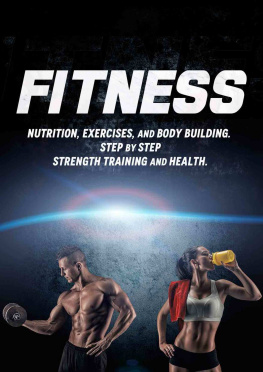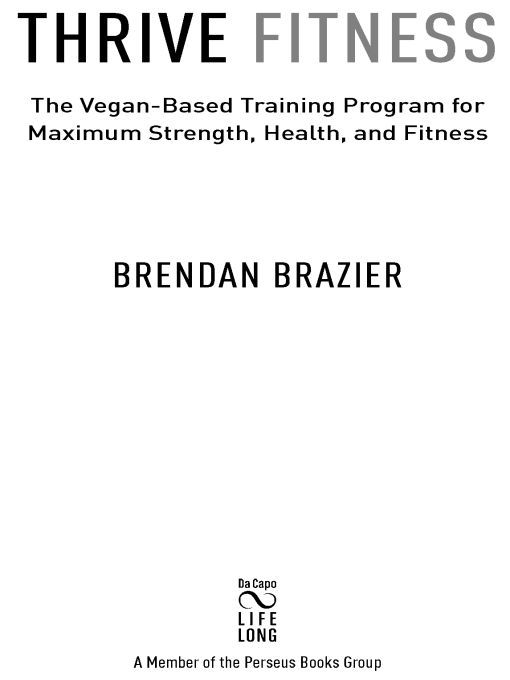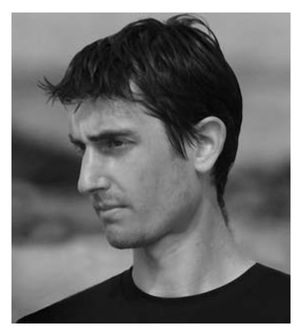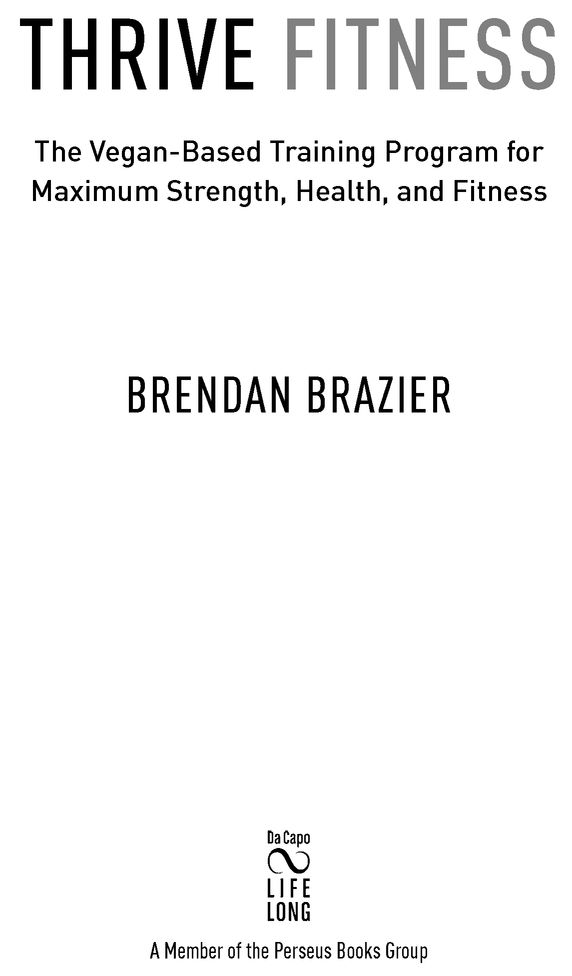Table of Contents
Praise for Brendan Brazier
Brendans knowledge is second to none. I read Thrive and was enthralled that after reading so many books and meeting with so many experts, Brendan was able to explain his thoughts on nutrition in such a clear and insightful way... I only hope my competition doesnt read this book until after Im done competing.
Simon Whitfield, Olympic silver (triathlon, Beijing 2008) and gold (triathlon, Sydney 2000) medallist
Thrive is packed with invaluable information that can assist anyone at any level. I wish Brendan all the best.
Bruny Surin, Olympic gold medallist (4x100 m relay, Atlanta 1996), third-fastest human ever
Thrive is an inspiring read not just for athletes but for anyone looking for more energy, vibrancy and just to feel and even look better. This is a great book!
Sarma Melngailis, Pure Food and Wine executive chef and co-founder
The guidelines in Thrive work to help maintain your bodys optimal health level whether youre a world-class athlete, a 9 to 5er or a stay-at-home mom... Theres no other resource like it out there.
Mac Danzig, Ultimate Fighter 6 Champion
Thrive is not only welcome, but its also timely... Brendan Brazier is a Canadian success story.
Hlne Meurer, ALIVE magazine
Thrive is ideal for dieters who want to reduce their
carbon footprint and get healthy at the same time.
The Library Journal
I cant say enough good things about Thrive and honestly believe that every athlete, trainer or coach owes it to themselves to read it.
Jason Ferruggia, Chief Training Advisor to Mens Fitness magazine
Thrive is an authoritative guide to outstanding performance, not just in top-level athletics, but in day-to-day life... This book sets aside the myths that have held many people back, and provides a state-of-the-art program for top health.
Neal D. Barnard, M.D., President: Physicians Committee for Responsible Medicine
Thrive is a life changing book! The nutritional approach that Brendan has created is amazing, and all backed with powerful facts. If you want to reduce stress, feel great and attain peak performance, get Thrive!
Jon Hinds, former strength coach of the LA Clippers, advisor to MLB and NFL teams
Thrive is an excellent source of information for anyone wanting to improve their own health by eating a whole-food, plant-based diet.
Mitzi Dulan, R.D., CSSD, Team Sports Nutritionist: Kansas City Chiefs and Kansas City Royals
Brendan Braziers Thrive Diet will increase the micronutrient density of your eating style and enable you to live longer, live healthier and thrive.
Joel Fuhrman, M.D., bestselling author of Eat to Live and Eat for Health
Brendan Brazier is one of only a few professional athletes in the world whose diet is 100 percent plant-based. Hes a professional Ironman triathlete, bestselling author (Thrive, Da Capo Press, 2008), and the creator of an award- winning line of whole food nutritional products called Vega. He is also a two-time Canadian 50km Ultra Marathon Champion.
Nominated in 2006 and 2008 for the Manning Innovation Award, Canadas most prestigious award for innovation, Brendan was short-listed both times for the formulation of Vega. In 2006, Brendan was invited to address the U.S. Congress on Capitol Hill, where he spoke of the significant social and economic benefits that could be achieved by improving personal health through a plant-based diet and regular exercise. The focus of his speech was to draw attention to the role food plays in the prevention of most chronic diseases currently plaguing North Americans.
Brendan has appeared on CTV and CBC in Canada and on NBC, ABC, and FOX in the United States. He was also named one of the 25 Most Fascinating Vegetarians by VegNews magazine.
As a renowned speaker and sought-after presenter throughout North America, Brendan is a guest lecturer on the topic of high-performance plant-based nutrition at eCornell in New York.
He lives in Los Angeles, California and Vancouver, British Columbia.
ALSO BY BRENDAN BRAZIER
Thrive: The Vegan Nutrition Guide to
Optimal Performance in Sports and Life
introduction
For me, fitness wasnt an option. In ninth grade, I had decided that I wanted to be a professional athlete, so I had to be fit. Starting out as a track runner, it didnt take long before my strengths and weaknesses revealed themselves. Apparently, I had very little natural speed. So I figured that perhaps I would fare better in endurance sports. But I didnt. My ability to run for a long time without fatigue setting in wasnt particularly impressive either. With no speed and little endurance, I would either have to rethink my career goals or find out how to dramatically improve.
Despite these shortcomings, I genuinely enjoyed running. Each morning before school, I would run around the track for 10 minutes. Even in that brief amount of time, I began to appreciate some of runnings many attributes. It served as a mental time-out little new information entered my mind and the thoughts I already had were given a new dimension. The relaxing nature of running became a form of escapism. And I was improving. Each week I was noticeably covering more ground within 10 minutes, yet expending no extra energy.
Perhaps I wasnt overly talented as an athlete, but one of this endurance sports greatest qualities is that talent has little bearing on who will be successful. To be a great sprinter, for example, your muscles must be predominantly made up of fast-twitch fibers a trait determined by genetics. For endurance pursuits, you just have to do your chosen sport over and over. The training effect will take hold and performance will improve. Without fail, slowly and methodically chipping away will forge the lean, efficient muscularity and cardiovascular system of a high-level athlete. The greatest determining factor for success is simply putting in the miles. And since I enjoyed doing that, the odds shifted in my favor.
The more I ran, the more it became obvious that I actually did have a talent of sorts the ability to recognize that I was average at best and would have to work harder and smarter than others to achieve any level of success. I accepted that I would have to put in thousands of hours of endurance training to have a chance to race professionally.
And it worked. I turned my talent into a career. Graduating from high school in 1993, I began my professional Ironman triathlon career in 1998. Having raced pro for seven years, in the autumn of 2003 I was hit by a car while cycling. Though I wasnt injured badly, I wasnt able to race the following year. Having been completely immersed in full-time training and racing since high school, the only people I kept company with were like-minded high-level endurance athletes, so, to me, we were normal. As I began to meet people outside of my athletes-only circle of friends, I started to realize how fortunate I was to be highly fit. I got a glimpse of its value in a real-world setting and started to appreciate what higher-level fitness could offer in terms of high-quality living. I noticed significant differences from those who were of average or below-average fitness: I had no cravings for sugary, starchy foods or caffeine-containing drinks. I didnt require much sleep seven hours a night was plenty since I slept deeply and woke up feeling completely revitalized and ready to go. My energy level was always high without reliance on stimulants. My thoughts were clear from early morning to late at night. I was viewed as a bit of an oddity by my new circle of friends.





